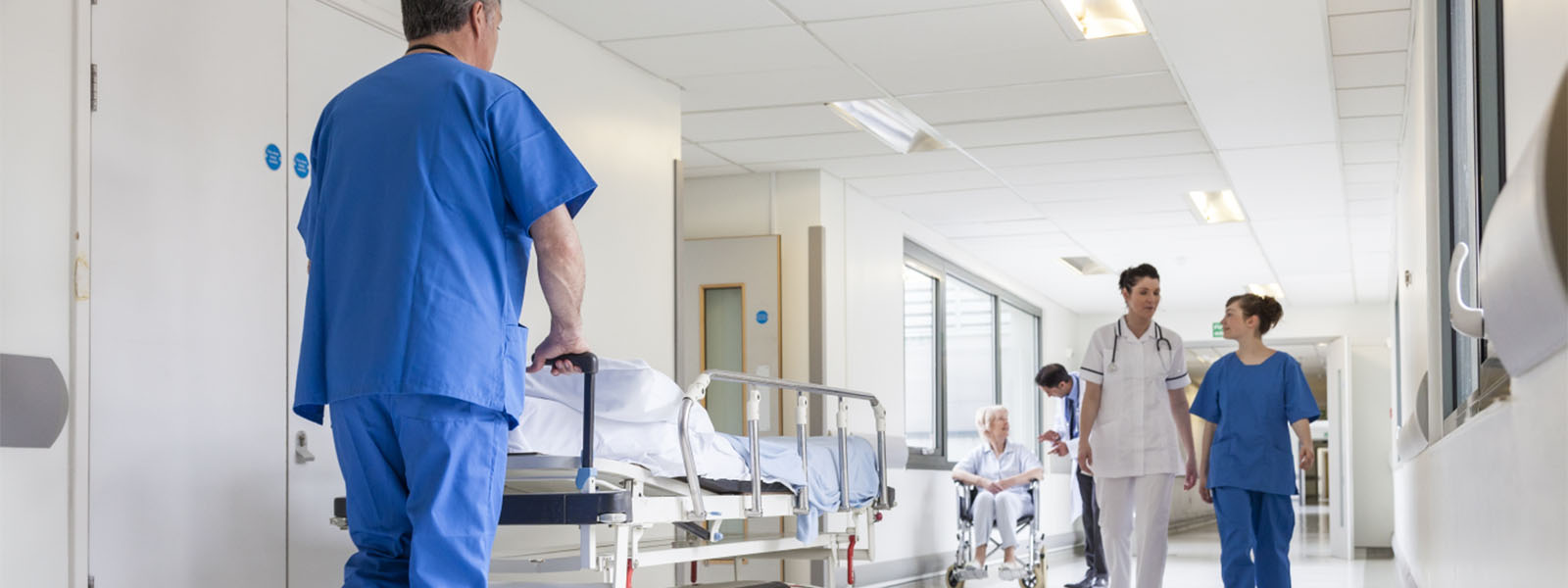The health systems research cluster is interested in the applications of management science in healthcare organisation and delivery. Our work has close links with health economics, optimisation, operations management and demography.
We've strong links with the Strathclyde Institute of Pharmacy and Biomedical Sciences, the Centre for Health Policy, and several departments in Strathclyde Business School, including Economics, Human Resource Management and the Hunter Centre for Entrepreneurship.
Current research
The group has several ongoing projects which include:
- Healthcare prioritisation
- IndiaSim project
- Discrete event simulation support for NHS Scotland
- Variations in medical treatment choice – Caesarean sections as a case study
- The Value of Medtech Solutions offering in a stressed healthcare environment
- House with care for older people in Northern Ireland
- The Pharmacy Prescribing Support Unit of NHS Greater Glasgow and Clyde
- HAPIOR
- Systems transformation in mental health and wellbeing
- COVID-19 vaccine delivery barriers
- Controlling the spread of COVID-19 in care homes
- The COVID-19 Multi-Model Comparison Collaboration (CMCC)
Staff working within the area of healthcare research
Dr Fahim Ahmed is mainly interested in the application of Discrete Event Simulation (DES) within healthcare operations. His expertise are in using DES for modelling problems including patient-flows, resource allocation, and capacity constraints etc. His other area of interest is simulation conceptual modelling using structured methods. He is also involved with the DES support project for NHS Scotland with Gillian Anderson and Robert van der Meer.
Dr Kerem Akartunali is interested in various optimisation problems inherent in health systems and treatment. His previous work with Australian colleagues on radiation treatment planning continues with the design and development of sophisticated algorithms and solution methods for more effective use in practice. More recently, Kerem also worked on staff scheduling problems in health and care such as nurse rostering and homecarer routing, where preferences and legislation makes these problems significantly complex.
Gillian Anderson is interested in healthcare operations and how the use of Discrete Event Simulation (DES) can inform change. She has worked with the orthopaedics department at Glasgow Royal Infirmary and is currently funded by The Scottish Government to support DES improvement projects.
Professor Susan Howick is interested in using simulation models to evaluate the impact of healthcare policies and understanding how different types of models can be used to assess the impact of changes in a healthcare system at both a strategic and operational level.
Dr Itamar Megiddo is interested in integrating disease and economic models to design policy and strategy (eg vaccination and health systems strengthening strategy) and agent-based modelling of healthcare systems and services. He also works on the prioritisation of healthcare investments, including in the context of universal health coverage, modelling interventions to mitigate and monitor healthcare acquired infections, and methodological innovations in economic assessment of healthcare technologies. He is currently working on projects related to COVID-19, vaccination, antimicrobial resistance, and non-communicable diseases.
Professor Alec Morton has expertise in a range of topics include: methodological innovations in economic assessment of healthcare technologies; health inequalities and poverty traps; technological innovation in healthcare systems; prioritisation of healthcare investments; performance measurement of healthcare systems; and thefinancial sustainability of the Scottish National Health Service.
Dr Robert van der Meer is interested in operations and supply chain management and managerial economics. His recent research activity has mainly focused on health systems improvement and the evaluation of new technology in healthcare. In his work, he applies a range of analytical and modelling tools; including simulation modelling, cost modelling and cost-benefit analysis, statistical analysis and mathematical optimisation, depending on the nature of the problems encountered. He is also involved with the Discrete Event Simulation support project for NHS Scotland with Gillian Anderson and Fahim Ahmed.
Abigail Colson is interested in public health policy and program evaluation, the theory and application of health technology assessment and economic evaluation, the control of infectious disease and antimicrobial resistance, and decision making under uncertainty. Expert judgements are an inevitable input into both formal and informal decision models, and she is particularly interested in how to improve the elicitations and use of judgements from experts.
Dr Ioanna Nixon is a Visiting Professor at University of Strathclyde and a Consultant Oncologist at the Beatson West of Scotland Cancer Centre in Glasgow. She specialises in the treatment of Head and Neck cancers and sarcomas, and here research interests include clinical research in the areas of my specialty, survivorship and management pathways. I work with Professor Morton and Prof Van Der Meer on several projects and research grants. She mentors junior doctors and trainees, as well as in National Leadership Programmes, such as ScIL programme by NES.





